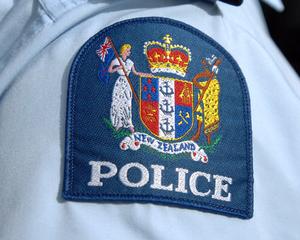
Crime statistics released yesterday show the total amount of crime recorded south of the Waitaki dropped again last year, as it has every year since 2003, and the proportion of crimes that were resolved increased, as it has each year since 2005.
Police chiefs say they are starting to reap the benefits of a a new approach where police are not purely reactive, but tasked in a more targeted way, based on intelligence gathered about individual offenders, potential offenders or places where crime is more likely to happen.
The Southern police district as a whole reported another good drop in recorded crime last year (down 7.6%, or 2000 fewer offences than recorded in 2009), while the Southland police area again reported one of the largest drops in recorded crime of any police area in the country (down 12.2%, or 1223 offences).
In the Dunedin-Clutha police area, total recorded crime was down 5.6%, or 689, with reductions in all main areas of recorded crime, including assaults - serious assaults were down 16% from 335 to 281 - theft, burglary, property damage and public order offending.
Drug offending remained relatively steady.
Thefts from cars in Dunedin-Clutha increased 5%, from 843 to 885, while dropping significantly in other parts of the district.
In the Otago Rural area, which includes Central Otago, Queenstown and the Waitaki, the total amount of crime recorded was down across most crime categories compared with 2009 (less 4.2%, or 258 offences).
Motor vehicle thefts were down 17% and property damage down 9.4%, although such offending as disorderly or offensive conduct was up 0.8%.
The number of offences relating to cultivating drugs also rose, from 38 to 92, which police put down to the number of drug operations run in the area last year.
In Southland, acting area commander Inspector Olaf Jensen said crime reductions were due to a change in policing style, fully implemented in 2010.
Police there were working more as a whole team and more closely with the community, and were more focused on things like targeting "hot locations" of crime and individuals, rather than responding only after something happened.
The results showed the approach worked, he said.
Theft was down 17%, burglary down 13%, and property damage down 20%. However, the number of assaults were slightly up, with serious assaults in 2010 increasing from 274 to 282.
There was also a slight increase (six cases) in family violence, reflecting a national trend where the increasing level of reporting over the past few years peaked in mid-2010.
Drug offending in Southland was up 9.6% but police had been proactively targeting drug dealers, he said.
The rate of solving crimes increased in all three police areas.
Nationally, the number of recorded offences dropped by 5.6% (or 25,000) last year from the previous year.
Murders, and within those figures, family violence murders, were down significantly.
Fraud, drugs, weapons and burglary rates were also lower.
Sexual assault and related offending increased by 3.6% in 2010, driven almost entirely by recorded family violence, and might reflect greater reporting.
Police Minister Judith Collins welcomed the statistics, saying the result was a tribute to the hard work of police.
Police Association president Greg O'Connor also praised the work of officers, and said it was not a coincidence the figures followed a boost in police resources.
He warned the crime rate decrease could be quickly lost if budget cuts targeted police.
Finance Minister Bill English said last week the pace of public service reform was to be sped up, and all government programmes would be looked at to see where spending could be cut.
Other groups also warned the government off funding cuts.
Chief families commissioner Carl Davidson said more people were reporting family violence crimes as a result of public campaigns.
"Now that we have some evidence that these campaigns are contributing to an actual downturn in the incidence of partner violence, we have to reaffirm our commitment, step up our efforts and do even more, so the momentum for family wellbeing is not lost."
National Network for Stopping Violence Services spokesman Brian Gardner urged the Government to continue to allow community services to do more of what was working.
"We need to retain every dollar of the current funding and increase funding where we see we are making a real difference."






